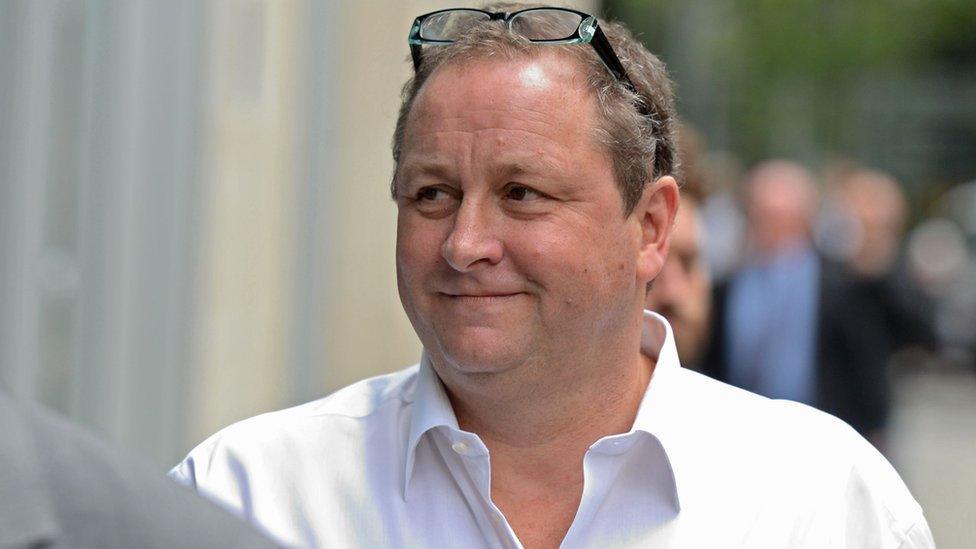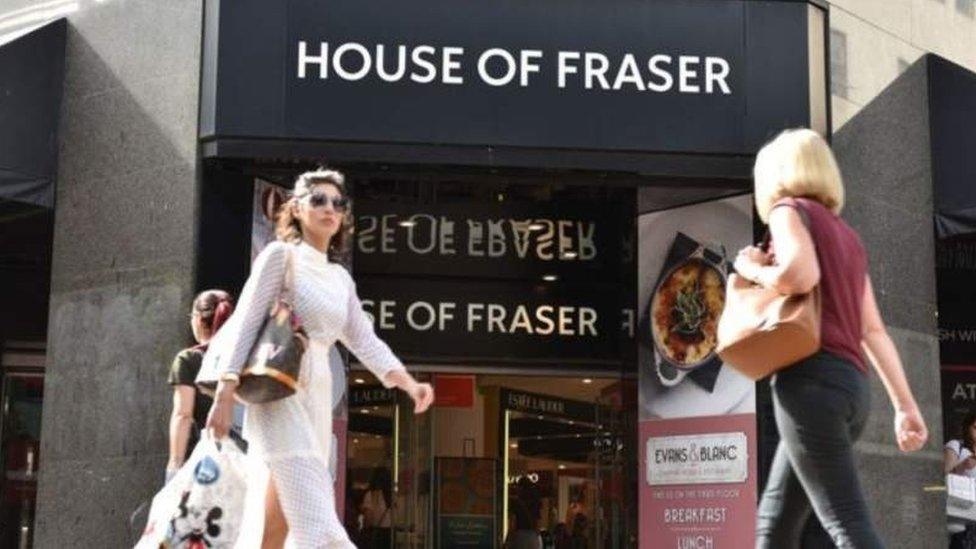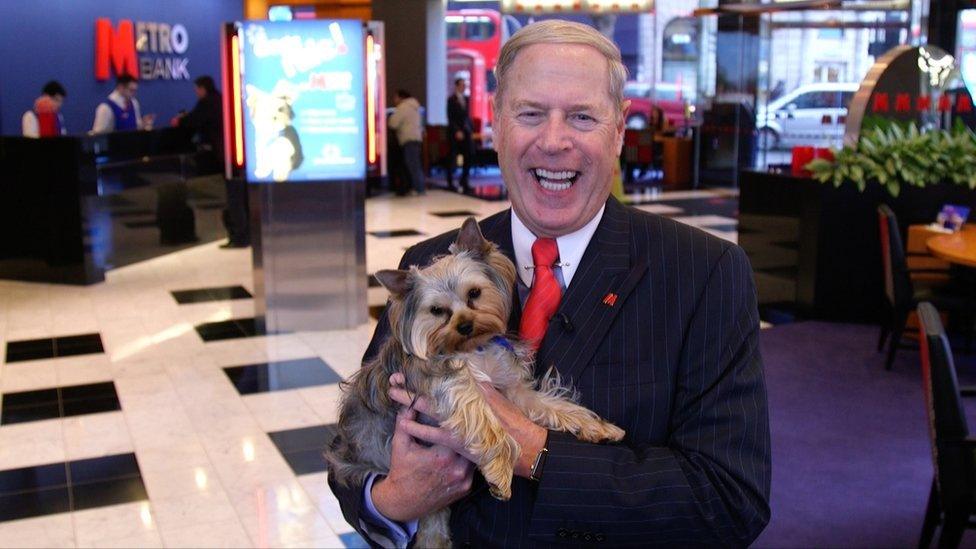Mike Ashley - thwarted saviour of Debenhams or serial sinner?
- Published
- comments

Mike Ashley had two rescue attempts rejected
Mike Ashley is one of the UK's most talented and successful retailers. He turned a single store and £10,000 into a billion pound empire.
He has put his hand in those deep pockets to offer a last chance to a series of High Street retailers who seemingly had nowhere else to turn.
In recent years he has often been "around the hoop" (a basketball metaphor often used by merger and acquisition bankers) when well-known consumer brands and chains have been up for sale.
He bought House of Fraser, Evans Cycles, Flannels and others outright and amassed a nearly 30% stake in Debenhams, before seeing the £150m he spent on it go up in smoke when the lenders took control on Tuesday.
But his claim that the Debenhams administration is "nothing short of a national scandal" has raised eyebrows and reasonable questions about the Sports Direct tycoon's right to be considered a thwarted saviour of yet another High Street victim.

Evans - just one of the brands Mike Ashley has snapped up
Ashley's critics say his complaints about how the Debenhams board treated him are a bit rich given he has treated Sports Direct as his private piggy bank to fund personal interests in a way that's inappropriate for a business that is supposed to be a publicly listed company.
In reality, Sports Direct is not really a public company. Ashley owns over 60% and he calls the shots without the accountability to shareholders that usually comes with a company in which the public can buy shares.
Opportunistic
His attempts to pay his own brother £11m provoked a rare successful shareholder revolt but his daughter's husband was awarded £5m for his role as "head of elevation" - thought to be code for smartening up the image of Sports Direct.
However, Sports Direct shareholders had no real say in his decision to go on a High Street spending spree.

He wants to turn House of Fraser into the "Harrods of the High Street"
He said his decision to buy House of Fraser out of administration for £90m was in order to create a "Harrods of the High Street".
It was widely thought that Ashley hoped to bring Debenhams and House of Fraser together to achieve just that.
The truth is no-one really knows what Mike Ashley's strategy is.
Most industry experts describe his approach as opportunistic. He sees a chance to buy something - anything - like sports brands Donnay, Slazengers and others at a steep discount - and sell them and the abandoned stock for more than he bought them for.
Nothing wrong with that in the merciless cut and thrust of modern retail.
But he has also been criticised in the past for his treatment of his own staff. MPs and unions described some of the working conditions of Sports Direct employees as similar to those of a "Victorian workhouse".
Ashley responded to those criticisms and improved the terms and conditions of many of his employees.
High risk High Street
Nevertheless, his claim that the Debenhams board ignored the principles of good corporate governance will be seen by many as throwing stones when you are sitting in a glass house.
This particular scene in an epic boardroom drama may be over but there may be more to play for.
Mike Ashley could yet try to buy Debenhams - or bits of it - from a group of lenders-now-owners who have no real interest or experience in running a retailer.
Despite losing £150m in a high stakes, high risk, High Street gamble on Debenhams - to many in the retail industry Ashley remains a "flawed genius".
- Published27 February 2019

- Published15 February 2019

- Published4 January 2016
